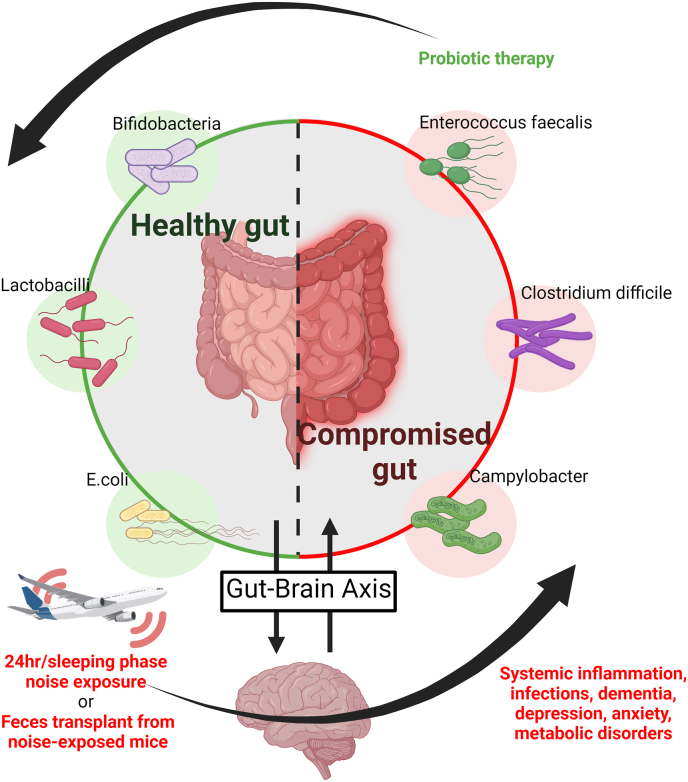Fig. 13.
Noise and the microbiome. The gastrointestinal microbiome is connected to neuropsychiatric processes via the gut-brain axis, affecting neuropsychiatric disorders, whereas mood and neuropsychiatric health may also affect intestinal inflammatory disease [322,323]. Noise causes neuronal activation with subsequent stress hormone release and has been associated with annoyance, depression, and dementia. Accordingly, noise triggers alterations of the gut-brain axis, leading to a shift to harmful bacteria in the intestine associated with cognitive impairment and Aβ accumulation in a murine model of Alzheimer's disease [324]. Noise also disrupts the equilibrium of intestinal pro-oxidative and antioxidant mechanisms associated with low-grade systemic inflammation in mice [325] and generally causes an imbalance of health-compromising versus -promoting bacteria together with impaired mental health. As a proof-of-concept, these adverse health effects of noise mainly were corrected by probiotic therapy [328]. In contrast, feces transplantation from noise-exposed to unexposed mice induced the above-mentioned health complications [324]. Image was created using Biorender.com by modifying the central scheme from https://de.freepik.com/vektoren-premium/menschlicher-doppelpunktvektor-der-guten-bacterial-flora-illustration_3804027.htm. Reused from Ref. [187] with permission. Copyright © 2021 the authors.

